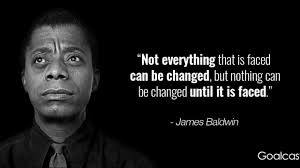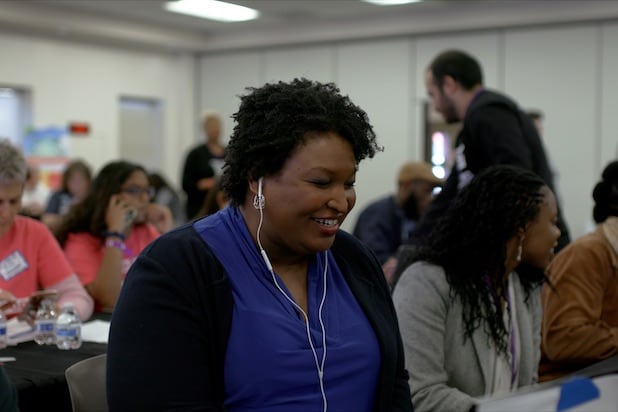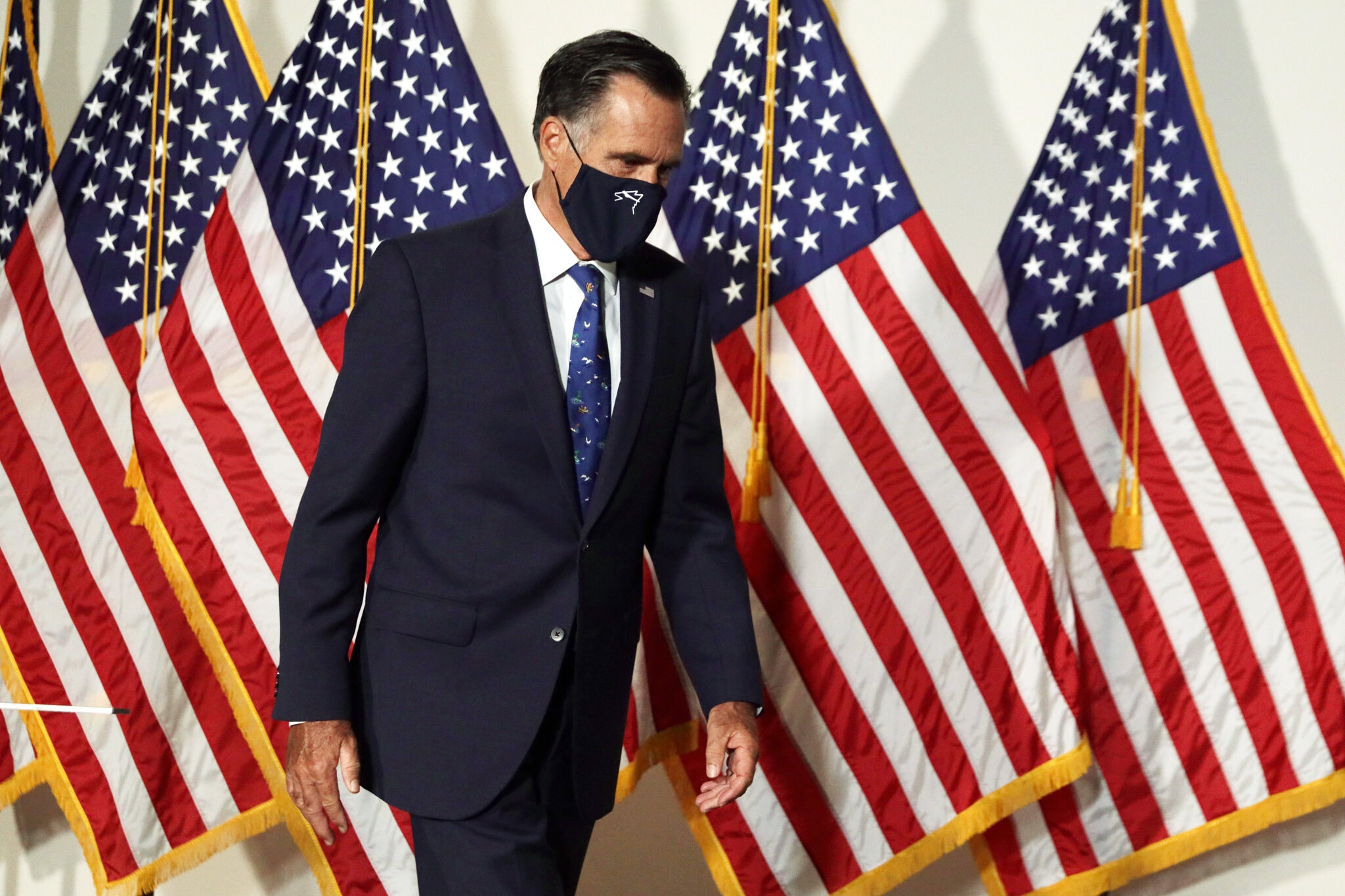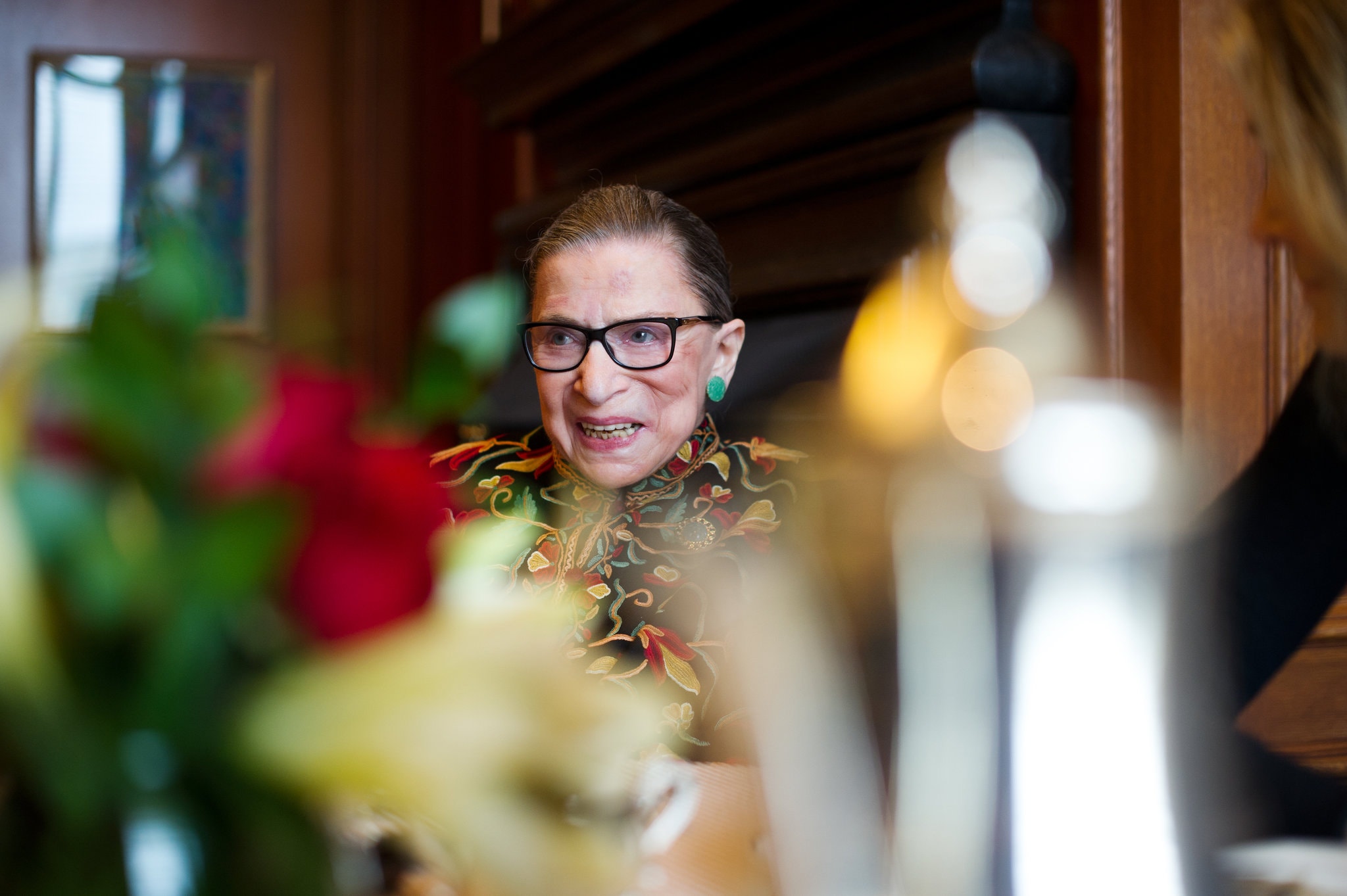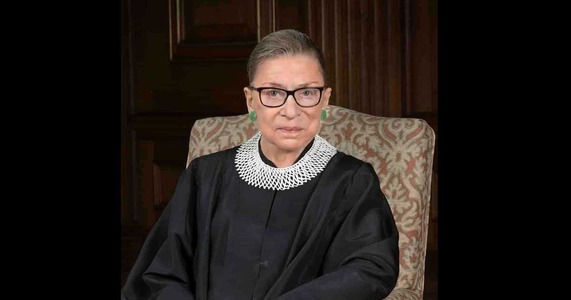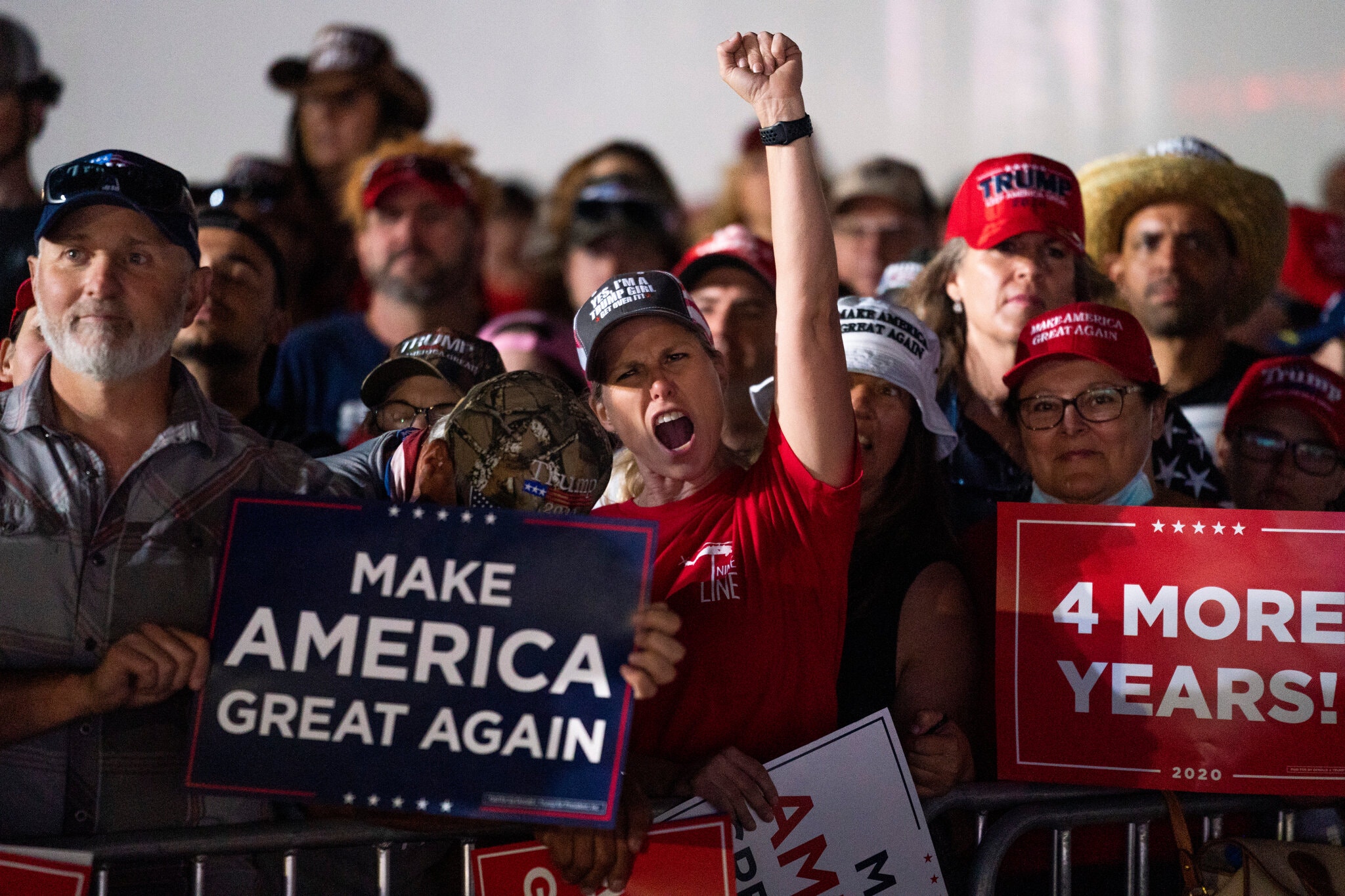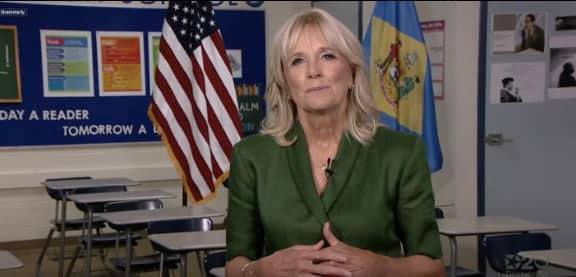Politics
All In: The Fight for Democracy’ Film Review: Stacey Abrams Documentary Is Timely and Terrifying
Lisa Cortés and Liz Garbus’ doc focuses on Abrams’ campaign for governor of Georgia but expands far past that to encompass nearly 200 years of voter suppression.
We haven’t had too many election years with quite this much attention paid to the process of voting, from allegations of voter suppression and voter fraud to President Trump’s recent suggestion that North Carolina voters cast ballots twice. But even before the act of voting became a hot-button issue in this particular election cycle, documentary filmmakers have turned their sights on the right to vote and the manipulations thereof.
Barak Goodman and Chris Durrance’s “Slay the Dragon,” which premiered at the 2019 Tribeca Film Festival and was released in April, went deep on the practice of gerrymandering. Dawn Porter’s “John Lewis: Good Trouble,” which was released by Magnolia and CNN in July, is a portrait of the late congressman that detours to explore the issues of voting rights for which he spent his lifetime crusading. And now, Lisa Cortés and Liz Garbus’ “All In: The Fight for Democracy,” which focuses on Stacey Abrams’ fight to become governor of Georgia but expands far past that to encompass nearly 200 years of every type of voter suppression.
It is the most comprehensive and far-reaching of the recent voting-rights docs, and with the election approaching it’s an uncommonly timely and urgent document of the many ways in which the foundations of democracy can be thwarted. So exhaustive that at times it’s exhausting, it’ll terrify anybody who’s worried that the true danger in this year’s election is voter suppression, not voter fraud.
Stacey Abrams is one of the producers of the film, which is organized around her run for governor against Brian Kemp – who, as Georgia’s sitting secretary of state, also oversaw the election in which he narrowly defeated her amid numerous examples of the closing of polling places and the purging of voter rolls. And she’s one of its key talking heads, all of whom are positioned at long tables with deep rooms behind them; the settings make it look like they’re lecturing or testifying before congress, and lend an air of gravitas to what’s being said and to the people who are saying it.
Of course, the issue deserves all the gravitas it can get, and the film takes it all the way back to the election of George Washington, when only six percent of Americans — white, male property owners – were eligible to vote. From there, it delves into the 15th Amendment in 1870, which gave Black men the right to vote (women were still excluded) and led to African-American congressmen elected at state and national levels.
In the Reconstruction era that followed the Civil War, the film points out, more than two-thirds of eligible Black people registered to vote in some southern states. But after congress agreed to withdraw troops from the South to effectively end Reconstruction, the states (initially in the South, but later elsewhere) began to find ways to exclude them from the voting rolls: poll taxes, literacy tests that were designed to be almost impossible to pass, then felony disenfranchisement coupled with statues that made arrests and convictions easy.
By the end of World War II, “All In” says, registration in the South had fallen to three percent of eligible African-Americans. And organizations like the Ku Klux Klan intimidated those who were registered. For instance, Maceo Snipes, a WWII veteran, was the only Black person to vote in Taylor County, Georgia in 1946, and was shot and killed by a group of men on his front porch soon after casting his ballot.
“All In” suggests that Martin Luther King’s march over the Edmund Pettis Bridge in 1965 was a turning point, when graphic footage of Alabama police savagely beating peaceful protestors woke up Americans and spurred President Lyndon Johnson to push for and get passed the Voting Rights Act of 1965.
At this point, the film’s clear storytelling gets a little diffuse; the movie alternates between sequences featuring Abrams’ race for governor with sections from the past, but then there are time jumps within the time jumps, and a sense that “All In” really is trying to fit it all in.
And there’s a lot to fit in, notably in recent years when opponents of the Voting Rights Act seized on Barack Obama’s election as a way to undermine the act by claiming it was no longer necessary. At the same time, says author Carol Anderson, the coalition of 15 million new voters brought to the polls to vote for Obama became “the hit list for voter suppression.”
The Voting Rights Act had been extended many times over the years, and always proudly signed by Republican presidents. But behind the scenes, a strategy to constantly challenge elements of the law in court finally hit pay dirt in 2013, when the Supreme Court under Chief Justice John Roberts – whose mentor was former Chief Justice William Renquist, once one of the leaders in voter suppression in Arizona according to the film – invalidated many provisions of the bill.
In the aftermath, “the floodgates” opened to voter ID laws that made it particularly hard for minorities to be registered, as well as purges of the voting rolls, poll closures and aggressive gerrymandering.
“Intimidation from the government is real, it is powerful, it’s because of changing demographics and the fear of what this larger vote can mean,” says Anderson.
All of this is a huge amount to cover, and the film strains to do it. But even if it feels a little disorganized at times, and occasionally overwhelmed by the mass of material it’s trying to cover, “All In” leaves the unmistakable impression that there is an organized effort to prevent some citizens from voting, and that President Trump’s claims of widespread voter fraud – which his own commission could not document – is part of that effort.
holocaust
Meet the Jewish Woman Suing Neo-Nazis For a Living
Meet the Jewish Woman Suing Neo-Nazis For a Living By Lior Zaltzman
What do you do when you get a call from an iconic human rights lawyer, asking you to help her sue some Nazis? Well, if you’re Amy Spitalnick, you say yes, of course.
Spitalnick, 34, is the executive director of Integrity First for America, the nonprofit group that’s taking on the neo-Nazis who marched at the Unite the Right rally in Charlottesville. On behalf of community members of that Virginia city, her organization is suing two dozen individuals and groups connected to the rally — the one where protestors were shouting, “Jews will not replace us” — back in August 2017. The main defendant of the case, Jason Kessler, was a member of the Proud Boys, the white nationalist hate group president Trump told to “stand back and stand by” at the first presidential debate this week. Another, Andrew Anglin who runs the Daily Stormer, construed Trump’s debate comment as a call for a race war.
This case, which The New York Times called “the most sweeping lawsuit against the promoters of the Charlottesville white power rally,” is slated to stand trial in April of 2021.
Back in 2017, Spitalnick was the communications director and senior policy adviser to the New York Attorney General. She was at her sister’s wedding shower when she learned that a white supremacist plowed his car into a crowd of peaceful protesters in Charlottesville, injuring 28 people and killing 32-year-old Heather Heyer. It was a terrifying and memorable moment for Spitalnick.
“I’m the granddaughter of Holocaust survivors and we had surrounded the shower with photos of our family, including all the photos of my grandparents,” Spitalnick tells me in a telephone interview. “And I remember sitting on one of the folding chairs, as people were leaving, on the phone with the Attorney General, writing the statement that we put out, and thinking how horrifying and baffling it was, that in America in 2017, neo-Nazis were so emboldened that they could murder someone on the streets of an American city.”
In the course of her work for the Attorney General, Spitalnick had met Roberta Kaplan — one of the lead attorneys of the Edie Windsor case, which paved the way for marriage equality in 2013. It was Kaplan who first called Spitalnick, asking if she wanted to help her sue Nazis. Kaplan had put together a case on behalf of community members in Charlottesville to hold accountable some of the individuals and groups that brought terror to that town. Thinking of how Nazis murdered almost all of her grandparents’ families, Spitalnick joined IFA as its executive director.
“Even before we go to trial, we’ve seen very real financial and legal and operational consequences for these groups and leaders,” Spitalnick says. “Richard Spencer, who’s one of our defendants, said the case is ‘financially crippling’. Groups like League of the South have said they can’t open a new building because of our case. Two defendants have had bench warrants issued for their arrest. Others have faced tens of thousands of dollars in sanctions and so they’re already facing very real financial, legal, and operational consequences even before trial.”
“And when we go to trial and win very large civil judgments against them, this case really has the potential to totally undercut, bankrupt, and dismantle these groups, which is not only about their own ability to operate, but the deterrent effect it will have on the broader movement,” Spitalnick explains.
Of course, the main goal of the case is to get justice for the injured residents of Charlottesville. But there’s also another, more lofty goal: “This is something that our lead counsel Robbie Kaplan often talks about… Every decade or so there’s a trial in this country that is about more than the trial itself, and serves as the sort of public reckoning [and] public education on a critical issue,” Spitalnick says.
She continues, “We believe that this case can be that case; that moment to really help sharpen and focus the public’s understanding of the crisis of violent white supremacy.”
This crisis, Spitalnick says, is not political. She sees it as “a fundamental question of security and democracy. And what we’re talking about here is one of the most dire threats to our communities… And they’re only becoming more and more emboldened.”
Spitalnick says there’s a “clear line” that connects the Charlottesville rally to the other white supremacist, racist, and anti-Semitic violence that’s occurred in recent years, including the Tree of Life synagogue shooting in Pittsburgh and the shooter in Christchurch, New Zealand who targeted Muslims and mosques.
Social media, she says, plays a crucial role: “The Charlottesville violence was planned extensively online, and the basis for our lawsuit are these online chats, in which they discuss every detail down to hitting protesters with cars,” she says. “Even again, last night, the Proud Boys were immediately online, gleefully celebrating the President’s comments, and turning it into their new slogan.”
“It’s important to point out this isn’t happening in a vacuum,” Spitalnick adds. “There have been active disinvestments from the federal government in the types of policies and work that is meant to combat extremists.”
This has nothing to do with free speech, she cautions. “If these individuals and groups had simply gone to Charlottesville, and stood on the street corner with their vile, racist, anti-Semitic signs and their swastikas and chanted the awful things that they did, they would have had every right to do so,” she says. “But that’s not what they did. They, after planning for months in advance on social media and elsewhere, went to Charlottesville with the intent to bring racist violence to that community, and target people based on their race, their religion, and their willingness to defend the rights of others. That is not something that’s protected by free speech.”
As dark as it all sounds, fortunately, there’s something we can all do about it. “Broadly, it’s so important that the issue of violent white supremacy and violent extremism not fall off people’s radars…” Spitalnick says. “And it’s so important that we hold our officials accountable on the federal, state, and local level.”
“There’s also a lot we can do as consumers,” she adds. “We should be holding social media accountable. There is no obligation by any social media company to give a platform to violent extremism. The First Amendment does not require private companies to give a platform to extremism — no matter what they might say… And as consumers, we should use our voices and the power that we have to hold the private sector accountable.”
Of course, there’s a real danger to the work Spitalnick does. She and her colleagues get a lot of violent and hateful threats, many connected to the Jewish identity of many of their team members. “Security is our biggest priority, the biggest line item in IFA’s budget,” she says. “It’s fairly rare for a civil case to require this level of security, or, frankly, any real security. But most of the cases don’t involve neo-Nazi defendants.”
“It’s so easy and understandable to feel hopeless and helpless, and scared and angry in this moment — and I certainly do at times,” Spitalnick tells me when I ask how she keeps herself motivated. “But I think a lot about my grandparents’ generation and the fact that, unlike their generation, we live in a country that is supposed to be governed by the rule of law, that has a justice system that has laws, like the ones we’re using to fight back and hold accountable those who threaten justice who seek to undermine justice and civil rights.”
“We have been, knock on wood, or, you know, not to give it kinehora as my grandmother would say, successful at doing that so far in this case, if you look at the impact it’s had,” Spitalnick says. “And so we are going to keep fighting to use that rule of law and use that justice system and to protect that rule of law and to protect our justice system, which is even more urgent over the last few weeks.”
Politics
An Open Letter to Mitt Romney by By Bret Stephens
Dear Senator Romney,
It isn’t hard to guess what you’re hearing from most of your fellow Republicans as they try to persuade you to cast a vote for President Trump’s Supreme Court nominee before the election. In a nutshell, it’s this: “The Democrats didn’t play by the rules in the past, and you’d be a fool to think they will play by them in the future. So why should we not fill a seat that’s constitutionally ours to have?”
It’s bad advice. Bad for the country. Bad for the party. Bad for you.
Lest you think I don’t get the argument, let me rehearse it. There used to be a bipartisan tradition of confirming well-qualified nominees for the court. Democrats trashed it with their trashing of Robert Bork. There used to be a bipartisan tradition of approving well-qualified nominees for lower courts. Democrats trashed it by filibustering George W. Bush’s appellate court nominees. There used to be a bipartisan tradition of respecting the filibuster. Democrats trashed it by blowing up the filibuster in 2013. There used to be a tradition of the Judiciary Committee treating nominees with a sense of fairness. Democrats trashed it when they used uncorroborated allegations to try to block and besmirch Brett Kavanaugh.
In short, whatever sin is involved in moving forward on Trump’s next nominee this close to a presidential election, it’s a venial one compared with what the other side has done, and may still do.
Nor, I imagine, is that everything your caucus colleagues are telling you. The left, they say, is engaged in a full-scale attack on traditional American values, from freedom of speech to the presumption of innocence to the right to bear arms to the need to enforce our immigration laws to the broader concept of law and order. These things are too important to hazard on a bare 5-4 conservative majority on the Supreme Court, especially now that John Roberts has succumbed to the lure of being the swing vote. A 6-3 majority might be the only sure defense against this cultural revolution for a generation to come.
So I get the analysis. And I agree that Democrats have a lot to answer for, the Kavanaugh circus in particular.
But the questions you might helpfully ask yourself are these: When did any person or party ever get clean by following another into the gutter? And if decades of Democratic transgressions against Senate norms are bad, how are those norms improved by Republican transgressions against them?
One answer you might hear to this is that it’s no sin for a president to exercise his constitutional right to nominate a judge at any point in his tenure or for the Senate to vote on the nomination. Ruth Bader Ginsburg’s confirmation process, after all, took a grand total of some 50 days.
Yet it was Republicans who unilaterally changed the norms in 2016 to block Merrick Garland’s nomination to fill Antonin Scalia’s seat. And people like Lindsey Graham promised they would live by the new norms, even if it was politically inconvenient. It’s a promise Graham is reneging on, but has a moral obligation to honor.
I realize your decision may seem more difficult if Trump nominates a judge whose philosophy and character you admire. No doubt you’d like to see such a judge on the court. But refusing to cast a vote until next year merely delays her elevation by a few months — assuming, that is, that Trump wins and Republicans retain their Senate majority.
This, however, raises a philosophical consideration. If a central conservative complaint about the federal judiciary is that it has arrogated too many powers that ought to be in the hands of the people, how can conservatives justify entrenching their power in the courts in the expectation that they’re unlikely to win at the polls? The Garland rule (or, if you prefer, the Biden rule) may have had no basis in the Constitution, but at least it was consonant with the populist drift in conservative thinking.
Now you have a Republican Party that seeks to advance its notions of judicial modesty and democratic accountability by the most immodest means imaginable, all in order to lock in conservative control over the least democratic branch of government. Wouldn’t the better Republican way be to try to win more elections with better candidates?
I respect the fact that you’re a pragmatic politician who values the views of your colleagues and constituents — most of whom, I suspect, would likely favor rapid confirmation of the nominee. But as you so eloquently put it in February, when you cast the lone G.O.P. vote to convict President Trump in his impeachment trial, “freedom itself is dependent on the strength and vitality of our national character.” A Republican Party that lies and bamboozles voters contributes nothing to improving that character.
Senator, it may not have been your destiny to be president. But it’s still yours to show Americans what it means to be courageous by way of sound and independent judgment. Your decision alone won’t make all the difference; three Republican senators would need to join you. But — with your colleagues Susan Collins and Lisa Murkowski — it will show the way.
Politics
Justice Ruth Ginsburg’s Legacy
Justice Ruth Ginsburg did her best to stay in her seat in the Supreme Court before the election for all Americans. We must honor her by doing everything we can to make sure this happens.
holocaust
Do not fill Ruth Bader Ginsburg’s Supreme Court seat until after the 2021 inauguration
holocaust
When Good People Don’t Act, Evil Reigns
Stop thinking that the horrors of the world will simply work themselves out. By Sept. 13, 2020
I have often wondered how major world tragedies and horrors were allowed to unfold. Where were all the good people, those who objected or should have? How did life simply go on with a horror in their midst?
How did the trans-Atlantic slave trade play out over hundreds of years? How did slavery thrive in this country? How was the Holocaust allowed to happen? How did the genocides in Rwanda or Darfur come to be?
There is, of course, nearly always an explanation. Often it is official policy; often it is driven by propaganda. But I’m more concerned with how people in the society considered these events at the time, and how any semblance of normalcy could be maintained while events unfolded.
It turns out that our current era is providing the unsettling answer: It was easy.
As I write this, nearly two hundred thousand Americans have died — many of them needlessly — from Covid-19, in large part because the Trump administration has refused to sufficiently address the crisis, be honest with the American people and urge caution. Instead, Trump has lied about the virus, downplayed it, resisted scientists’ warnings and continues to hold rallies with no social distancing and no mask requirements.
Things are poised to get worse: Models now predict that the number of Americans killed by the virus could double between now and Jan. 1. According to the Institute for Health Metrics and Evaluation at the University of Washington:
“We expect the daily death rate in the U.S., because of seasonality and declining public vigilance, to reach nearly 3,000 a day in December. Cumulative deaths expected by Jan. 1 are 415,090; this is 222,522 deaths from now until the end of the year.”
And yet, Americans still flock to Trump rallies, Republicans continue to defend his pandemic response and it is not clear that he will be defeated in November. We are, in many states, back to restaurants and bars, schools and churches, gyms and spas. It’s not as if we don’t know that there is a deadly virus being transmitted through the air, but it seems as though many Americans, weary of restrictions, have simply made their peace with it.
We have a climate crisis that continues to worsen. Storms are getting stronger. Droughts are severe. Rivers are flooding. The sea level is rising. And yet, we don’t do nearly enough to stop it and may not do enough before it’s too late to do anything.
Right now much of the West Coast is ablaze with hellish scenes of orange skies, and yet too many of us entertain climate change deniers, or, perhaps worse, know well the gravity and precariousness of the situation and still haven’t changed our habits or voted for the candidates with the boldest visions to save the planet.
Right now, China has detained as many as one million mostly Muslim citizens, in indoctrination camps, hoping to remold many into what The New York Times called “loyal blue-collar workers to supply Chinese factories with cheap labor.”
And yet, the world does little. Many look away. Life goes on.
This is how these catastrophes happen — in full sight — and people with full knowledge don’t revolt. People sometimes think that the issue is far away, or if it’s not, that it’s too big and they are too powerless.
They think provincially, or even parochially, concerned with their own house, their own street, their own community.
“It’s too bad that those children are in cages, but I can’t worry about that now, the clothes in the dryer need folding.”
“It’s too bad that an unarmed Black man just got shot by the police, but I can’t worry about that now, the yard needs mowing.”
I guess in some ways this impulse is self-protecting, preventing the mind and spirit from becoming overwhelmed with angst and rage. But, the result is that evil — as a person or system — rampages, unchecked, taking your personal laissez-faire as public license.
If you don’t complain, you condone.
But this mustn’t be. Stop thinking of yourself as weak or helpless. Stop thinking that things will simply work themselves out. Stop thinking that evil will stop at the gate and not trample your own garden.
Gather the energy. Gather your neighbor. Fight, vote, email, post. Do all you can to stand up for the vulnerable, for the oppressed, for the planet itself. Don’t let history record this moment as it has recorded too many others: a time when good people did too little to confront wickedness and disaster.
As Edmund Burke wrote in his 1770 “Thoughts on the Cause of the Present Discontents”: “When bad men combine, the good must associate; else they will fall, one by one, an unpitied sacrifice in a contemptible struggle.”
But you may be more familiar with another quote often attributed to Burke: “The only thing necessary for the triumph of evil is for good men to do nothing.”
Politics
Democratic Vice Presidential nominee Kamala Harris’ speech from the 2020 Democratic National Convention
Politics
“I’m…asking you to believe in your own ability, to embrace your own responsibility as citizens,” he said. “To make sure that the basic tenets of our democracy endure. Because that is what is at stake right now. Our democracy.”
Politics
Jill Biden spoke at tonight’s DNC from Brandywine High School where she taught English.
Below is a transcript of Jill Biden’s prepared remarks during Tuesday’s Democratic National Convention speech. She spoke out of Brandywine High School, where she taught English in the the 1990s.
I have always loved the sounds of a classroom. The quiet that sparks with possibility just before students shuffle in. The murmur of ideas bouncing back and forth as we explore the world together. The laughter and tiny moments of surprise you find in materials you’ve taught a million times.
When I taught English here at Brandywine High School, I would spend my summer preparing for the school year about to start—filled with anticipation. But this quiet is heavy. You can hear the anxiety that echoes down empty hallways. There’s no scent of new notebooks or freshly waxed floors. The rooms are dark as the bright young faces that should fill them are now confined to boxes on a computer screen.
I hear it from so many of you: the frustration of parents juggling work while they support their children’s learning—or are afraid that their kids might get sick from school. The concern of every person working without enough protection. The despair in the lines that stretch out before food banks. And the indescribable sorrow that follows every lonely last breath when the ventilators turn off.
As a mother and a grandmother, as an American, I am heartbroken by the magnitude of this loss—by the failure to protect our communities—by every precious and irreplaceable life gone. Like so many of you, I’m left asking: how do I keep my family safe?
Healing a Family
You know, motherhood came to me in a way I never expected. I fell in love with a man and two little boys standing in the wreckage of unthinkable loss. Mourning a wife and mother—a daughter and sister.
I never imagined, at the age of 26, I would be asking myself: how do you make a broken family whole? Still, Joe always told the boys, “Mommy sent Jill to us,”—and how could I argue with her?
And so, we figured it out together—in those big moments that would go by too fast—
Thanksgivings and state championships, birthdays and weddings. In the mundane ones that we didn’t even know were shaping our lives: reading stories, piled on the couch. Rowdy Sunday dinners and silly arguments. Listening to the faint sounds of laughter that would float downstairs as Joe put the kids to bed every night—while I studied for grad school or graded papers under the pale yellow kitchen lamp—the dinner dishes waiting in the sink.
We found that love holds a family together. Love makes us flexible and resilient. It allows us to become more than ourselves—together. And though it can’t protect us from the sorrows of life, it gives us refuge—a home.
How do you make a broken family whole? The same way you make a nation whole. With love and understanding—and with small acts of kindness. With bravery. With unwavering faith.
You show up for each other, in big ways and small ones, again and again. It’s what so many of you are doing right now. For your loved ones. For complete strangers. For your communities.
There are those who want to tell us that our country is hopelessly divided—that our differences are irreconcilable. But that’s not what I’ve seen over these months.
We’re coming together and holding on to each other. We’re finding mercy and grace in the moments we might have once taken for granted. We’re seeing that our differences are precious and our similarities infinite.
We have shown that the heart of this nation still beats with kindness and courage. That’s the soul of America Joe Biden is fighting for now.
‘Why Joe Fights’
After our son, Beau, died of cancer, I wondered if I would ever smile or feel joy again. It was summer but there was no warmth left for me.
Four days after Beau’s funeral, I watched Joe shave and put on his suit. I saw him steel himself in the mirror—take a breath—put his shoulders back—and walk out into a world empty of our son. He went back to work. That’s just who he is.
There are times when I couldn’t imagine how he did it—how he put one foot in front of the other and kept going. But I’ve always understood why he did it.
…For the daughter who convinces her mom to finally get a breast cancer screening and misses work to drive her to the clinic.
…For the community college student who has faced homelessness and survived abuse—but finds the grit to finish her degree and make a good life for her kids.
…For the little boy whose mom is serving as a marine in Iraq, who puts on a brave face in his video call, and doesn’t complain when the only thing he wants for his birthday is to be with her.
…For all those people Joe gives his personal phone number to, at rope lines and events—the ones he talks to for hours after dinner—helping them smile through their loss—letting them know that they aren’t alone.
He does it for you.
Joe’s purpose has always driven him forward. His strength of will is unstoppable. And his faith is unshakable—because it’s not in politicians or political parties—or even himself. It’s in the providence of God. His faith is in you—in us.
Yes, so many classrooms are quiet right now. The playgrounds are still. But if you listen closely, you can hear the sparks of change in the air.
We just need leadership worthy of our nation. Worthy of you. Honest leadership to bring us back together—to recover from this pandemic and prepare for whatever else is next. Leadership to reimagine what our nation will be.
That’s Joe. He and Kamala will work as hard as you do, every day, to make this nation better. And if I have the honor of serving as your First Lady, I will too.
And with Joe as president, these classrooms will ring out with laughter and possibility once again.
The burdens we carry are heavy, and we need someone with strong shoulders. I know that if we entrust this nation to Joe, he will do for your family what he did for ours: bring us together and make us whole. Carry us forward in our time of need. Keep the promise of America, for all of us.
